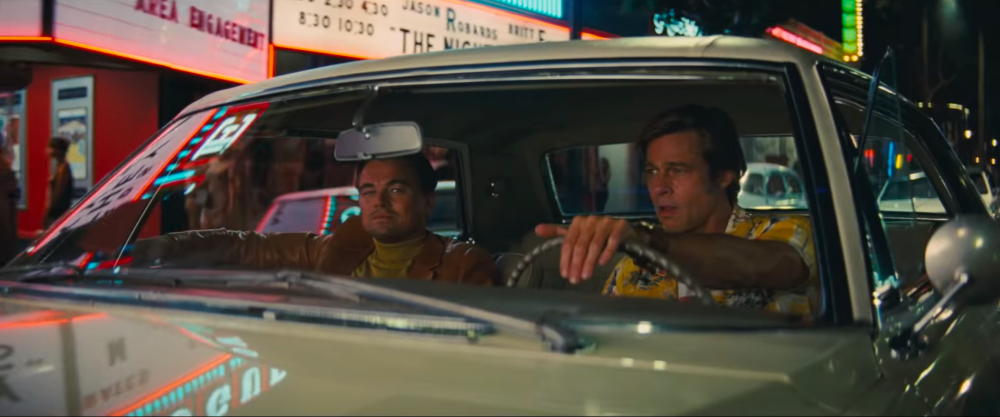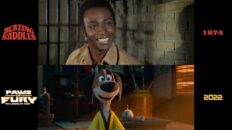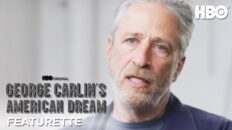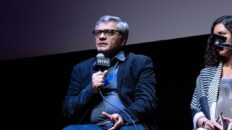Have you ever wondered how that magical land’s breeze would feel on your skin, or what the scent of summer’s night air could be, or the exact color of the moonlight?
Fantasies and fairy tales mean different things to everyone, but as movie lovers we have one thing in common: We love the experience of leaving what’s happening around us to enter the world of any film and embark on a journey with the characters on the big screen. We identify with them as we remember the times we’ve been in the same situations harboring the same joys and pains.
It’s make-believe, right? When the theater gets dark, during those moments of silence before the movie begins, somehow we let go of whatever that is not on the big screen. Yes, I know about the annoying noisy audience and all sorts of distractions, but those who choose to believe the magic and accept the temporary departure from reality, know the thrill.
What else also means different things to different people? Hollywood, of course. It’s rare to find indifference about it; movie lovers either love Hollywood or they hate it. And both of these feelings are so powerful that they reveal something about us: satisfaction or disappointment.
Within a couple of days if its release, Quentin Tarantino’s Once Upon a Time In … Hollywood, received a plethora of reviews. The intense reactions and opinions, even analyses of the director’s character and body of work, made me want to write about it in a more personal way. On why to me the film felt so intimate and overwhelmingly beautiful and heartbreaking at the same time.
Back to the fairy tale now.
Rick Dalton (Leonardo DiCaprio) has found his way in. He’s so close, and yet still oh so far from where he wants to be at the heart of this magical land. An actor of a Western TV series who hasn’t made it to lead roles on the big screen, Rick realizes that the hierarchy in Hollywood is an impossibility. The end of an era has arrived, and he belongs to the lower levels of an outdated and mostly vicious ladder. His only companion is his own stunt double, Cliff Booth (Brad Pitt), whose career will cease to exist if Dalton’s does. Bitter and scared, Dalton tries so hard to make it through another day on the set of the Western TV episode in production. I won’t divulge too much here, so as not to spoil it for you, but the movie plunges deep into the heart of the unseen and vile territories of the fairy tale.
While this unfolds, the film simultaneously takes us to the house next to Dalton’s where Sharon Tate (Margot Robbie) lives with Roman Polanski. You catch a glimpse into a day in her life in which this sweet young actor watches a movie she’s starred in. Tate is the embodiment of hope and optimism and, despite being in a marriage with the promiscuous Polanski, she believes in the now and better tomorrows. She IS the fairy tale despite the fact that we already know of the horrifying tragedy that ultimately ends her life.
After Tarantino gives the viewer a rich and long prelude to her imaginary ending, he unapologetically rewrites the history of the night of Tate’s murder. And before the final sequence is upon us, we’ve been able to see these fairy tale characters so closely that we have undoubtedly caught that unruly strand of hair on their forehead and the dust on their shoes. We’ve felt the breeze of a ride on Cielo Drive, the golden sunshine of L.A….
The filmmaker must have known that it would be unfair to see a frightening ending after being so deep in that magic. By keeping Tate and her companion’s alive at the end, the happy era’s demise is delayed, and Rick and Cliff, the working class members of Hollywood, find hope to be seen and shine. Hope is, after all, the blood life of fairy tales, is it not?
Tarantino’s ninth work stands tall as his most mature work, an ode to Hollywood’s last days of an unforgettable past…he gives us the ultimate fairy tale about Sharon Tate’s fate by taking us on a captivating ride through a few days in the Hollywood of yesteryear.
Salute to those who believe in the magic of movies and to Quentin Tarantino!








